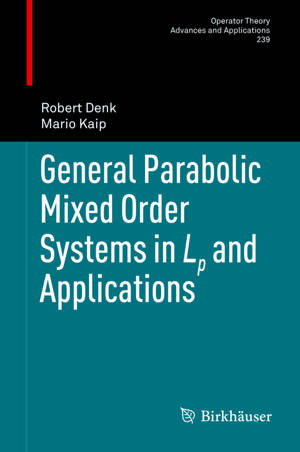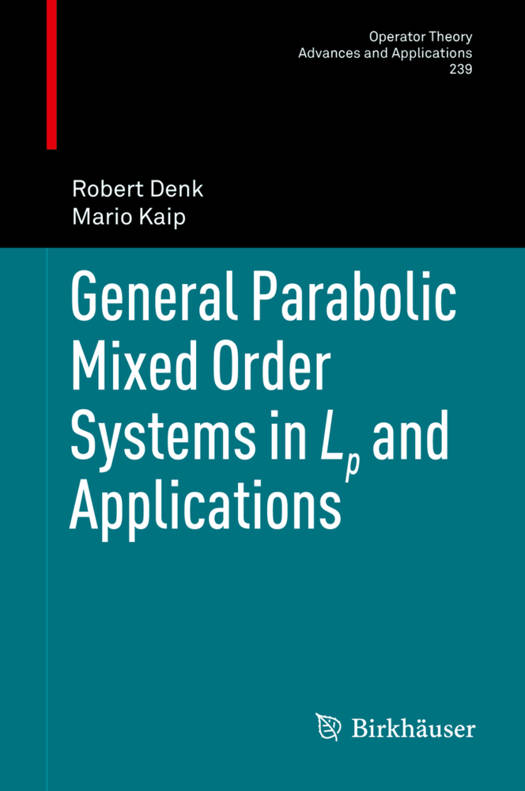
Bedankt voor het vertrouwen het afgelopen jaar! Om jou te bedanken bieden we GRATIS verzending (in België) aan op alles gedurende de hele maand januari.
- Afhalen na 1 uur in een winkel met voorraad
- In januari gratis thuislevering in België
- Ruim aanbod met 7 miljoen producten
Bedankt voor het vertrouwen het afgelopen jaar! Om jou te bedanken bieden we GRATIS verzending (in België) aan op alles gedurende de hele maand januari.
- Afhalen na 1 uur in een winkel met voorraad
- In januari gratis thuislevering in België
- Ruim aanbod met 7 miljoen producten
Zoeken
€ 125,95
+ 251 punten
Uitvoering
Omschrijving
In this text, a theory for general linear parabolic partial differential equations is established which covers equations with inhomogeneous symbol structure as well as mixed-order systems. Typical applications include several variants of the Stokes system and free boundary value problems. We show well-posedness in Lp-Lq-Sobolev spaces in time and space for the linear problems (i.e., maximal regularity) which is the key step for the treatment of nonlinear problems. The theory is based on the concept of the Newton polygon and can cover equations which are not accessible by standard methods as, e.g., semigroup theory. Results are obtained in different types of non-integer Lp-Sobolev spaces as Besov spaces, Bessel potential spaces, and Triebel-Lizorkin spaces. The last-mentioned class appears in a natural way as traces of Lp-Lq-Sobolev spaces. We also present a selection of applications in the whole space and on half-spaces. Among others, we prove well-posedness of the linearizations of the generalized thermoelastic plate equation, the two-phase Navier-Stokes equations with Boussinesq-Scriven surface, and the Lp-Lq two-phase Stefan problem with Gibbs-Thomson correction.
Specificaties
Betrokkenen
- Auteur(s):
- Uitgeverij:
Inhoud
- Aantal bladzijden:
- 250
- Taal:
- Engels
- Reeks:
- Reeksnummer:
- nr. 239
Eigenschappen
- Productcode (EAN):
- 9783319019994
- Verschijningsdatum:
- 10/12/2013
- Uitvoering:
- Hardcover
- Formaat:
- Genaaid
- Afmetingen:
- 156 mm x 234 mm
- Gewicht:
- 539 g

Alleen bij Standaard Boekhandel
+ 251 punten op je klantenkaart van Standaard Boekhandel
Beoordelingen
We publiceren alleen reviews die voldoen aan de voorwaarden voor reviews. Bekijk onze voorwaarden voor reviews.









